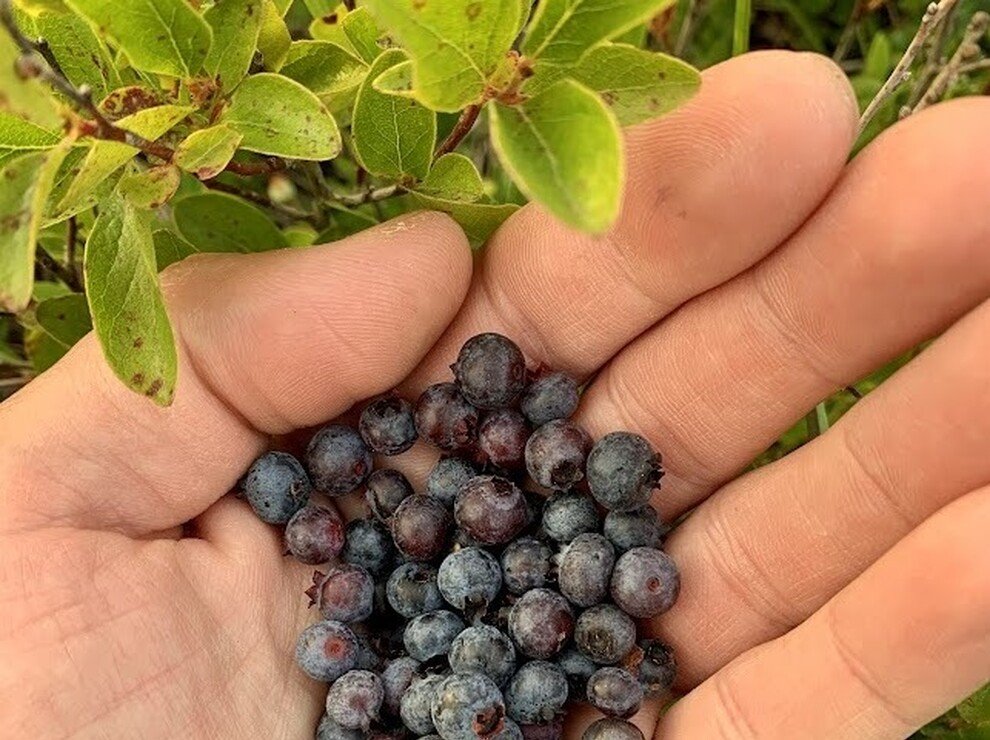
Klepto-Gulls of Nantucket Island
You may have heard about the recent theft that occurred at Stop and Shop. A man’s wallet was stolen from his cart right in the parking lot. It was front page news! Ok, it wasn’t front page news, but the perpetrator was identified as a frequent culprit of such crimes—a seagull.

Current Nature: 2024 Nantucket BioBlitz – Making Nature Count
Dog vomit slime mold, harlequin bugs, ghost pipe, searobins, American coot, and hickory tussock moths. What do these things have in common? They were all seen on Nantucket during the 2024 BioBlitz!
The Nantucket BioBlitz just wrapped up it’s fourth year of cataloging every living thing on the island in July. In a two-week period (July 13th – July 26th), volunteers, conservation professionals, students, and other community members canvased the island taking photos of living things (or clues to something alive) and uploading those observations to the iNaturalist app.

Current Nature: Smell The Roses
It is now noticeably summer on Nantucket and warmer weather has arrived. With it comes many flower blooms and in June, none more ubiquitous than roses. Whether it is the iconic rose-covered cottages in Sconset, your own backyard, the pathway to the beach, or an open grassland, you are bound to see a rose flowering somewhere on Nantucket at this time of year.

Current Nature: The Secret Language of Birdsong on Nantucket
Birdsong is arguably one of the most accessible, iconic, and impressive sounds in nature. Whether you are relaxing in your backyard, strolling through the busy streets of downtown, swimming at the beach, or even driving to work; if you listen, you’ll hear the birds singing. I often find myself wondering, what are the birds saying? Are they gossiping about the latest drama? Are they chatting about where to find the best food? Are they calling their mates, their children, their friends? Are there meanings to their calls at all, or do they just like to sing? The answer to this is not a simple one, but in short, birds are definitely utilizing their songs to communicate with one another. Analyzing birdsong has allowed us to realize that birds have language, dialects, and the ability to learn!

Current Nature: The Rich History Of Blueberries
Mid-July is approaching, which means the start of one of my favorite summer activities is almost upon us; blueberry picking! The practice of foraging for blueberries in this region dates long before me, and long before the arrival of European settlers. The indigenous people of New England were advanced farmers, however, blueberries and other native fruits were not crops that were farmed. Instead, they were foraged from their natural environments. Often, children were tasked with collecting wild blueberries which was commonly seen as a fun summer activity.

Current Nature: Make Way For Turtles
In recent weeks, you may have noticed many turtles traveling around the island. We’ve gotten so many reports of snapping and painted turtles crossing roads and nesting in some inopportune locations that they may need their own Instagram (#nantucketturtlespotter).
Why did the turtles cross the road? To get to the other side of course! The turtles are crisscrossing roads, paths, driveways, and uplands to get to their nesting grounds. Now is prime nesting time for all of our turtle species. Nesting season is temperature dependent, but generally peaks in mid-June. You’ll see them wandering out of the water into the upland, sometimes crossing roads and paths to reach a favorite nesting spot.

Current Nature: Queer Ecology
Among the most famous of all scientific texts is On the Origin of Species by Charles Darwin. The theories of natural selection and survival of the fittest are taught in schools around the world and have shaped modern ecology as we know it. About a century before Darwin, Carl Linnaeus pioneered modern taxonomy, introducing binomial nomenclature and the classification of life that we still use today. Although these systems have been useful in the scientific understanding of nature, over time they have led us to favoring rigid, binary labels; something must either be live or not alive, wild or domestic, male or female. Yet, the reality of life is much more complex, and the more we try to categorize species with distinct labels, the more we end up with ‘exceptions.’ One example that many people know about is that mammals give live birth except platypuses and echidnas, which lay eggs. We also have a tendency when discussing survival of the fittest to imagine ‘fit’ as being physically strong, fast, and smart; think a cheetah chasing down an antelope. But Darwin never referenced physical fitness, his belief was that the individuals that survived and the species that evolved did so because their genes and adaptations were the right match for their environment. This constant pressure to find a niche has led to infinite adaptations many of which do not match commonly held assumptions.

Current Nature: Spawning Season
Horseshoe Crabs are one of the many natural treasures found on Nantucket. They are commonly seen this time of year scooting about in shallow water, or along the shoreline. May and June is their breeding season, when hundreds of Horseshoe Crabs come ashore during full and new moons to breed. Did you know that these creatures are “living fossils”?
